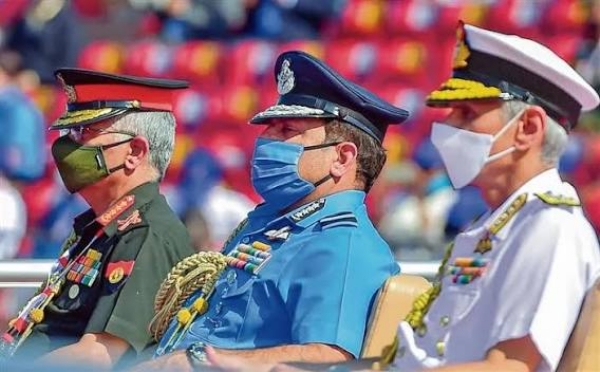
Kolkata, 25 November (H.S.).By Lt Gen Tarun Kumar Aich, PVSM, AVSM (Retd)
India’s military reform is trapped in a dangerous paralysis. While global military powers are reinventing themselves at breakneck speed, India is still hesitating over the most basic structural change needed for modern warfare. Theaterisation is not a reform to be “considered.” It is a reform to be executed. And every delay is a self-inflicted wound to national security.
The truth is blunt: India is trying to deter twenty-first-century threats with mid-twentieth-century command structures. This is not prudence; this is negligence dressed up as caution. Wars today demand integration, rapidity, and ruthless efficiency. But India’s separate service silos slow decision-making, duplicate resources, and fracture operational coherence. No serious military power in the world operates like this anymore. India should not either.
Our adversaries have moved ahead without hesitation. They have embraced jointness, consolidated commands, and developed doctrines for multi-domain warfare. Meanwhile, India continues to debate turf, hierarchy, and hypothetical fears. These are not just institutional reservations; they are strategic vulnerabilities. The battlefield will not wait for our consensus.
Arguments against theaterisation often masquerade as concerns for service identity. But identity does not win wars. Integrated capability does. A modern military’s strength is measured by its unity of effort, its interoperability, and its ability to bring every asset—from submarines to satellites to strike aircraft—into a single, coordinated operational picture. Theater commands deliver exactly that. Resisting them only weakens deterrence and emboldens adversaries.
India has the talent, the technology, and the training ecosystem to become one of the world’s most formidable joint forces. What it lacks is the urgency. Reform cannot be allowed to suffocate under bureaucratic caution or institutional ego. The political leadership must push forward decisively, and the services must embrace the reality that the next war will not respect organisational boundaries.
Theaterisation is not a threat to tradition; it is a prerequisite for survival in a fiercely competitive strategic environment. If India’s armed forces fail to adapt now, the price will be paid in operational setbacks and lost opportunities when the stakes are highest.
India must stop dithering. The time for studies, deliberations, and half-measures is over. Theaterisation must be implemented with intent, ambition, and unambiguous political backing. The nation cannot afford to go into the next conflict with a fragmented system designed for a world that no longer exists.
The message is simple: evolve now—or risk being outpaced when it matters most.
Hindusthan Samachar / Satya Prakash Singh








